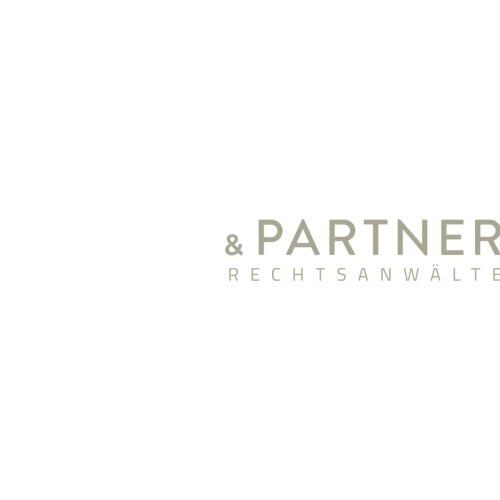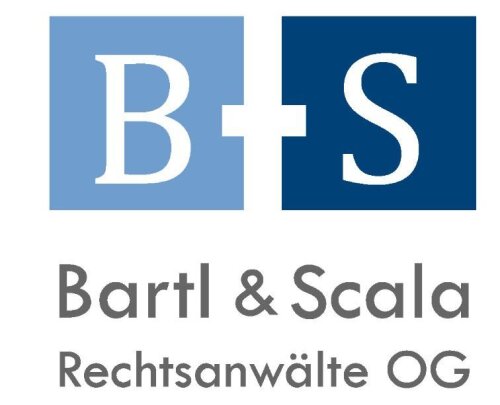Best Conveyancing Lawyers in Graz
Share your needs with us, get contacted by law firms.
Free. Takes 2 min.
Free Guide to Hiring a Real Estate Lawyer
List of the best lawyers in Graz, Austria
About Conveyancing Law in Graz, Austria
Conveyancing in Graz, Austria involves the legal process of transferring ownership of property from one person or entity to another. This is a specialized area of law that covers everything from drafting and reviewing sale agreements to registering property with the local authorities. Graz, as the second largest city in Austria and the capital of Styria, follows Austrian national property and real estate laws but may also be subject to specific provincial and municipal regulations. The conveyancing process ensures that property transfers are legally compliant and that both the buyer's and seller's interests are properly protected.
Why You May Need a Lawyer
People often seek legal help with conveyancing for a variety of reasons. Common situations include:
- Buying or selling residential or commercial real estate
- Transferring property between family members or as part of inheritance
- Resolving disputes over property boundaries or ownership
- Securing mortgages or refinancing existing loans
- Ensuring all legal requirements and due diligence are met to avoid future complications
- Assistance with foreign ownership laws for non-Austrian residents
An experienced conveyancing lawyer can help navigate the complex paperwork, handle negotiations, and ensure proper registration, all while protecting your interests throughout the transaction.
Local Laws Overview
Conveyancing in Graz is primarily governed by Austrian civil law and local real estate regulations. Key aspects include:
- Land Register (Grundbuch): Property ownership in Austria is documented in a public registry, which is decisive for establishing real rights over real estate. All changes in ownership must be registered.
- Sales Contract Requirements: Property sale contracts must be in writing and officially notarized to be legally binding.
- Pre-Emption Rights: In some cases, local or state authorities or certain third parties may have a pre-emption right over specific properties, especially with regards to agricultural land or protected buildings.
- Transfer Taxes and Fees: Buyers are generally responsible for certain taxes, such as real estate transfer tax (Grunderwerbsteuer), land registration fee (Eintragungsgebühr), and notary/court fees.
- Municipal Zoning Laws: Local building regulations in Graz may affect what can be built or altered on a given property.
- Foreign Ownership Rules: Non-EU citizens and companies may require official permits to purchase property in Austria, including in Graz.
Frequently Asked Questions
What is the first step in buying property in Graz?
The first step is typically finding a property and negotiating a purchase price with the seller. After that, a written purchase agreement is drafted and must be notarized to begin the legal conveyancing process.
Do I need a lawyer or notary to buy property in Graz?
Yes, Austrian law requires that the property purchase contract be authenticated by a notary or a lawyer. They also often manage the registration process with the Land Register.
How long does the conveyancing process take?
The process usually takes between six to twelve weeks from signing the contractual agreement to official registration in the Land Register, depending on the complexity of the transaction.
What taxes and fees will I need to pay?
Buyers typically pay a real estate transfer tax, a fee for registration in the Land Register, and notary or lawyer fees. Each cost varies depending on the value and type of property involved.
What is the Grundbuch?
The Grundbuch is Austria’s official Land Register. All legal property rights and encumbrances are recorded here, making it a central element in the conveyancing process.
Can foreigners buy property in Graz?
Yes, but non-EU citizens and companies usually need special permits from provincial authorities before purchasing property in Graz. EU citizens have fewer restrictions.
What happens if there are existing mortgages or encumbrances?
Any existing mortgages or burdens must be disclosed and managed as part of the sale. These are checked in the Grundbuch and dealt with before or as part of the transfer process.
Is a deposit required when signing a purchase agreement?
It is common to pay a deposit when the contract is signed. This is usually held in escrow by the lawyer or notary and transferred after all legal checks are completed.
What should I check before buying property?
Due diligence involves verifying title ownership, property boundaries, building permits, zoning laws, outstanding debts, and any restrictions listed in the Grundbuch.
What protection do buyers and sellers have?
The notary or lawyer drafts or reviews the contract to ensure both parties’ rights are legally protected, and also manages escrow accounts for deposit safety. The buyer is officially registered as the new owner only once all requirements are satisfied.
Additional Resources
For those seeking further information or assistance with conveyancing in Graz, the following organizations can be helpful:
- Landesgericht für Zivilrechtssachen Graz (Regional Civil Court Graz): Responsible for land registration applications and legal questions about title transfers.
- Steiermärkische Rechtsanwaltskammer (Styrian Bar Association): Provides a directory of registered lawyers with expertise in conveyancing and real estate law in Graz and Styria.
- Notariatskammer für Steiermark (Chamber of Notaries for Styria): Can help you find a local notary familiar with property law requirements in Graz.
- City of Graz Building and Zoning Authority: For questions on zoning regulations, building permits, and urban planning restrictions.
Next Steps
If you need legal assistance with conveyancing in Graz, consider the following actions:
- Gather all relevant property documents, including current title deeds, plans, and any previous contracts.
- Contact a licensed lawyer or notary with experience in property law in Graz for a consultation. They will explain your rights, obligations, and the expected costs.
- Clarify any questions you have about the process, including timelines, taxes, and municipal requirements.
- Ensure all contracts and legal steps are completed before transferring any funds or property rights.
- If issues arise during the transaction, rely on your legal advisor to communicate and negotiate on your behalf to protect your legal interests.
Engaging a qualified legal professional is the best way to ensure your conveyancing transaction in Graz proceeds smoothly and securely.
Lawzana helps you find the best lawyers and law firms in Graz through a curated and pre-screened list of qualified legal professionals. Our platform offers rankings and detailed profiles of attorneys and law firms, allowing you to compare based on practice areas, including Conveyancing, experience, and client feedback.
Each profile includes a description of the firm's areas of practice, client reviews, team members and partners, year of establishment, spoken languages, office locations, contact information, social media presence, and any published articles or resources. Most firms on our platform speak English and are experienced in both local and international legal matters.
Get a quote from top-rated law firms in Graz, Austria — quickly, securely, and without unnecessary hassle.
Disclaimer:
The information provided on this page is for general informational purposes only and does not constitute legal advice. While we strive to ensure the accuracy and relevance of the content, legal information may change over time, and interpretations of the law can vary. You should always consult with a qualified legal professional for advice specific to your situation.
We disclaim all liability for actions taken or not taken based on the content of this page. If you believe any information is incorrect or outdated, please contact us, and we will review and update it where appropriate.















